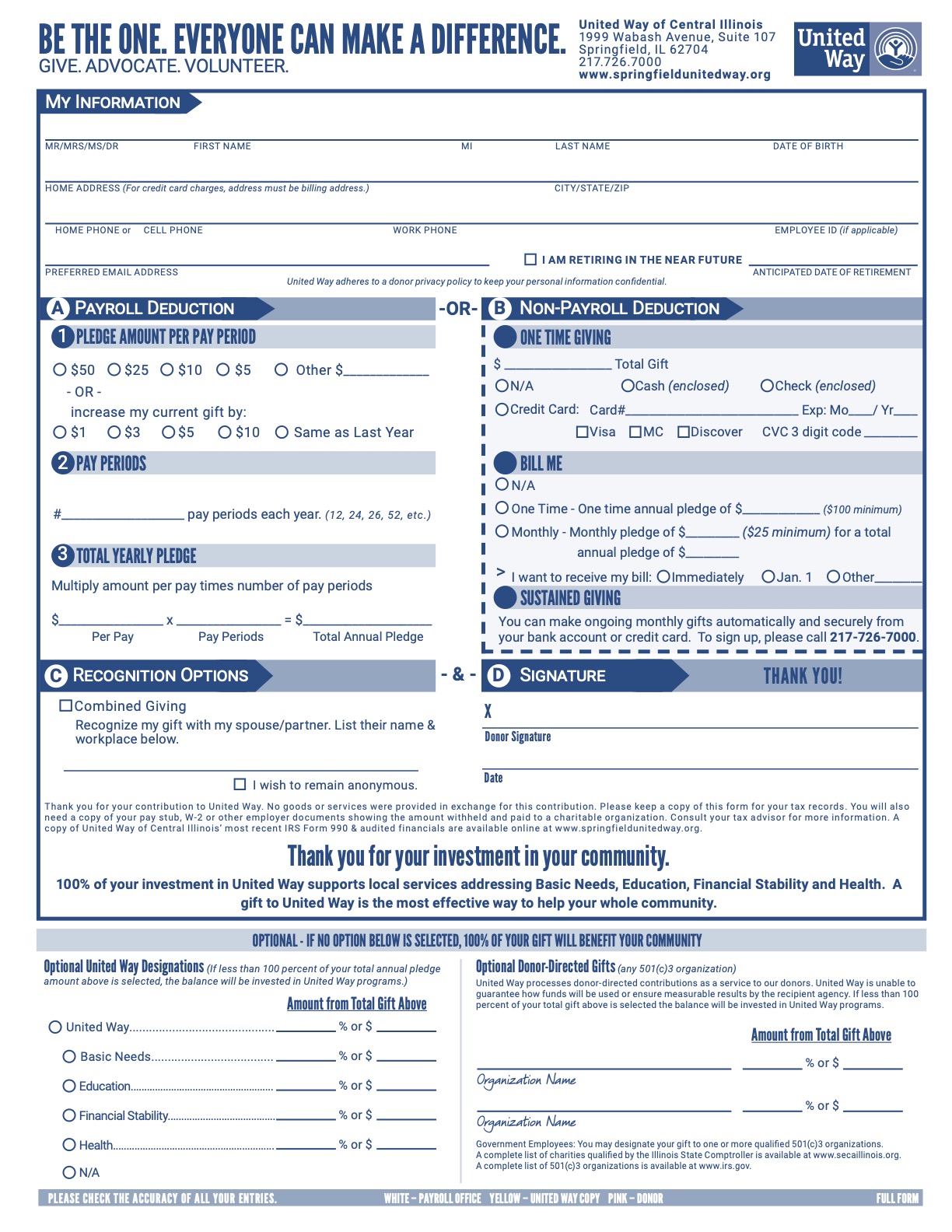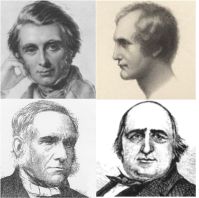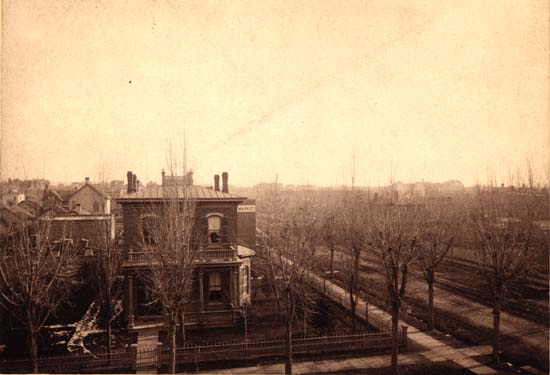|
Associated Charities
The Charity Organisation Societies were founded in England in 1869 following the ' Goschen Minute' that sought to severely restrict outdoor relief distributed by the Poor Law Guardians. In the early 1870s a handful of local societies were formed with the intention of restricting the distribution of outdoor relief to the elderly. Also called the Associated Charities was a private charity that existed in the late 19th and early 20th centuries as a clearing house for information on the poor. The society was mainly concerned with distinction between the deserving poor and undeserving poor. The society believed that giving out charity without investigating the problems behind poverty created a class of citizens that would always be dependent on alms giving. The society originated in Elberfeld, Germany and spread to Buffalo, New York around 1877. The conviction that relief promoted dependency was the basis for forming the Societies. Instead of offering direct relief, the societies ... [...More Info...] [...Related Items...] OR: [Wikipedia] [Google] [Baidu] |
George Goschen, 1st Viscount Goschen
George Joachim Goschen, 1st Viscount Goschen, PC, DL, FBA (10 August 1831 – 7 February 1907) was a British statesman and businessman best remembered for being "forgotten" by Lord Randolph Churchill. He was initially a Liberal, then a Liberal Unionist before joining the Conservative Party in 1893. While Chancellor of the Exchequer, in 1888, he introduced the Goschen formula to allocate funding for Scotland and Ireland. Background, education and business career He was born in London, the son of Wilhelm Heinrich (William Henry) Goschen, who emigrated from Leipzig. His grandfather was the prominent German printer Georg Joachim Göschen. He was educated at Rugby under Tait, and at Oriel College, Oxford, where he took a first in Literae Humaniores. He entered his father's firm of Fruhling & Goschen, of Austin Friars, in 1853, and three years later became a director of the Bank of England. From 1874 to 1880, Goschen was Governor (Company chairman) of the Hudson's Bay Company, ... [...More Info...] [...Related Items...] OR: [Wikipedia] [Google] [Baidu] |
United Way Of America
United Way is an international network of over 1,800 local nonprofit fundraising affiliates. United Way was the largest nonprofit organization in the United States by donations from the public, prior to 2016. United Way organizations raise funds primarily via workplace campaigns, where employers solicit contributions that can be paid through automatic payroll deductions. After an administrative fee is deducted, money raised by local United Ways is distributed to local nonprofit agencies. Major recipients have included the American Cancer Society, Big Brothers/Big Sisters, Catholic Charities, Girl Scouts, Boy Scouts, and The Salvation Army. United Way Worldwide Membership to United Way and use of the United Way brand is overseen by the United Way Worldwide umbrella organization. United Way Worldwide is not a top-down organization that has ownership of local United Ways. Instead, each local United Way is run as independently and incorporated separately as a 501(c)(3) organiza ... [...More Info...] [...Related Items...] OR: [Wikipedia] [Google] [Baidu] |
Poor Law In Britain And Ireland
Poverty is the state of having few material possessions or little . Poverty can have diverse , , and causes and effects. When evaluating poverty in statistics or economics there are two main measures: '''' compares income against the amount needed to meet [...More Info...] [...Related Items...] OR: [Wikipedia] [Google] [Baidu] |
Scientific Charity Movement
The Scientific Charity Movement was a movement that arose in the early 1870s in the United States to stop poverty. It sought to move the role of supporting the impoverished away from government and religious organizations and into the hands of Charity Organization Societies (COS). These Societies claimed the altruistic goals of lifting the poor out of poverty through the means of education and employment, and did make some strides to help young children involved in immoral underaged labor practices. However when it came to the COS's treatment of the "defective class" as they were labeled (insane, feeble-minded, blind, crippled, maimed, deaf and dumb, epileptic, criminal types, prostitutes, drug addicts, and alcoholics), the Scientific Charity Movement's other goals based in the popular post civil war social scientific theories of eugenics and social Darwinism came to light. Many of these "defective classes" were moved from the streets and into insane asylums where they were often expe ... [...More Info...] [...Related Items...] OR: [Wikipedia] [Google] [Baidu] |
Family Action
Family Action (previously Family Welfare Association and the Charity Organisation Society) is a charity in England founded in 1869. It provides support for families, including financial and mental health issues relating to them. The stated aim of the charity is to "provid practical, emotional and financial support to those who are experiencing poverty, disadvantage and social isolation across England". The charity is registered with the Charity Commission as charity number 264713. History Family Action was founded in 1869 as the Society for Organising Charitable Relief and Repressing Mendicity, commonly referred to as the Charity Organisation Society (COS). Its original aim was to combine the efforts of various overlapping charities in London, which was felt to lead to discrimination, poverty and waste. The society aimed to properly investigate the circumstances behind any charity claimants, and ensuring that relief should be sufficient to keep them above the poverty line. The ... [...More Info...] [...Related Items...] OR: [Wikipedia] [Google] [Baidu] |
Annie Barnes (suffragist)
Annie Barnes (née Cappuccio; 6 December 1886 – 22 February 1982) was a British-Italian socialist and suffragist. Life and suffragist action Barnes was born in Limehouse 6 October 1886. She was born Annie Cappuccio and her father had a confectionery, fruit and vegetable shop. In her autobiography ''Tough Annie'' she did not mention her Italian roots, but recalled her mother helping their particularly poor neighbours, employing widows or others to help in the house: "Mother always believed in treating everyone the same, as equals..That's how I was brought up." Barnes saw the crowd of suffragette protestors in July 1909, outside Edinburgh Castle Hall in Limehouse, including Mary Leigh, Mabel Capper, and Jennie Baines trying to enter the Lloyd George event. She said it was a "real to-do" including police falling head first off a horse into water trough to the crowd's amusement and then a woman in a wheelchair, possibly Rosa May Billinghurst, (who had been touching the horse) ta ... [...More Info...] [...Related Items...] OR: [Wikipedia] [Google] [Baidu] |
Alsager Hay Hill
Alsager Hay Hill (1 October 1839 – 2 August 1906) was an English social reformer active during the late 19th century, influential on poor law reform and employment issues. He founded one of the first labour exchanges and, in 1871, a newspaper, ''Labour News'', that is still published today as ''Construction News''. Early life Hill was born at Gressenhall Hall in Norfolk, the second son in a family of five sons and six daughters of John David Hay Hill, lord of the manor of Gressenhall, and Margaret (second daughter of the hop merchant and former MP for Cashel, Ebenezer John Collett).Owen, William Benjamin (1912). "Hill, Alsager Hay". In Lee, Sidney. ''Dictionary of National Biography'', 1912 supplement. London: Smith, Elder & Co. Hill was educated at Brighton College (1850–54) and at Cheltenham College (1854–57). In 1857 he obtained an exhibition at Caius College, Cambridge, migrating as scholar to Trinity Hall, where he graduated LLB in 1862. Becoming a student of the ... [...More Info...] [...Related Items...] OR: [Wikipedia] [Google] [Baidu] |
Octavia Hill
Octavia Hill (3 December 1838 – 13 August 1912) was an English Reform movement, social reformer, whose main concern was the welfare of the inhabitants of cities, especially London, in the second half of the nineteenth century. Born into a family of radical thinkers and reformers with a strong commitment to alleviating poverty, she herself grew up in straitened circumstances owing to the financial failure of her father's businesses. With no formal schooling, she worked from the age of 14 for the welfare of working people. Hill was a moving force behind the development of social housing, and her early friendship with John Ruskin enabled her to put her theories into practice with the aid of his initial investment. She believed in self-reliance, and made it a key part of her housing system that she and her assistants knew their tenants personally and encouraged them to better themselves. She was opposed to municipal provision of housing, believing it to be bureaucratic and impers ... [...More Info...] [...Related Items...] OR: [Wikipedia] [Google] [Baidu] |
Helen Bosanquet
Helen Bosanquet (''née'' Dendy; 10 February 1860 – 7 April 1925) was an English social theorist, social reformer, and economist concerned with poverty, social policy, working-class life, and modern social work practices. Helen worked closely with the Charity Organisation Society (COS), using her direct experience with living among "the poor". Bosanquet focused much of her career on family, specifically working-class families, and their relationship with poverty. Helen was the wife of English philosopher Bernard Bosanquet. Biography Early life Helen Dendy was born in Manchester in 1860 to Reverend John Dendy and his wife, Sarah Beard (1831–1922), one of nine children, the fifth child and the youngest daughter of John Relly Beard. Helen was one of three children, Mary Dendy was her elder sister and her brother was biologist Arthur Dendy (1865–1925). Education Helen and her sister were educated at home by a governess. In 1886, at the age of twenty-six, she attended New ... [...More Info...] [...Related Items...] OR: [Wikipedia] [Google] [Baidu] |
Indianapolis
Indianapolis (), colloquially known as Indy, is the state capital and most populous city of the U.S. state of Indiana and the seat of Marion County. According to the U.S. Census Bureau, the consolidated population of Indianapolis and Marion County was 977,203 in 2020. The "balance" population, which excludes semi-autonomous municipalities in Marion County, was 887,642. It is the 15th most populous city in the U.S., the third-most populous city in the Midwest, after Chicago and Columbus, Ohio, and the fourth-most populous state capital after Phoenix, Arizona, Austin, Texas, and Columbus. The Indianapolis metropolitan area is the 33rd most populous metropolitan statistical area in the U.S., with 2,111,040 residents. Its combined statistical area ranks 28th, with a population of 2,431,361. Indianapolis covers , making it the 18th largest city by land area in the U.S. Indigenous peoples inhabited the area dating to as early as 10,000 BC. In 1818, the Lenape relinquished their ... [...More Info...] [...Related Items...] OR: [Wikipedia] [Google] [Baidu] |
Settlement House
The settlement movement was a reformist social movement that began in the 1880s and peaked around the 1920s in United Kingdom and the United States. Its goal was to bring the rich and the poor of society together in both physical proximity and social interconnectedness. Its main object was the establishment of "settlement houses" in poor urban areas, in which volunteer middle-class "settlement workers" would live, hoping to share knowledge and culture with, and alleviate the poverty of, their low-income neighbors. The settlement houses provided services such as daycare, English classes, and healthcare to improve the lives of the poor in these areas. The most famous settlement house of the time was Hull House, founded by Jane Addams and Ellen Starr. History United Kingdom The movement started in 1884 with the founding of Toynbee Hall in Whitechapel, in the East End of London. These houses, radically different from those later examples in America, often offered food, shelter, and ... [...More Info...] [...Related Items...] OR: [Wikipedia] [Google] [Baidu] |
Frances Wisebart Jacobs
Frances Wisebart Jacobs (March 29, 1843 – November 3, 1892) was born in Harrodsburg, Kentucky, to Jewish Bavarian immigrants and raised in Cincinnati, Ohio. She married Abraham Jacobs, the partner of her brother Jacob, and came west with him to Colorado where Wisebart and Jacobs had established businesses in Denver and Central City. In Denver, Frances Jacobs became a driving force for the city's charitable organizations and activities, with national exposure. Among the philanthropical organizations she founded, she is best remembered as a founder of the United Way and the Denver's Jewish Hospital Association. Biography Frances Wisebart was born March 29, 1843 in Harrodsburg, Kentucky to Leon Wisebart, a tailor, and his wife. ''Frances Wisebart Jacobs'', The Colorado Historical Society. In addition to Frances, they had a son, Jacob (also called Benjamin), and five more girls, all of whom attended public school.Varnell, 38. Frances was a school teacher in Cincinnati, Ohi ... [...More Info...] [...Related Items...] OR: [Wikipedia] [Google] [Baidu] |






